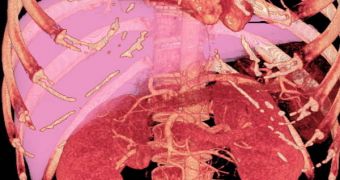Though geneticists around the world have known about the Fas-apoptosis inhibitory molecule (FAIM) gene for quite some time now, it became recently apparent that they did not know all there was to know about it. Experts from the Bioprocessing Technology Institute (BTI), in Singapore, have recently identified two new functions of the gene, which it uses to protect both immune and liver cells from a phenomenon known as programed cellular death, or apoptosis. The find is detailed in the latest issue of the scientific journal Cell Death and Differentiation.
In addition to discovering this amazing action that the gene has, the researchers in charge of the study, Jianxin Huo, PhD, and Shengli Xu, PhD, also evidenced the first animal model to study the gene, when they modified mice for expressing the gene more than usual for the first time ever. They believe that the find could have immediate applications in the field of medicine, and, as such, studying it on animals whose genome is known to be very similar to ours is of the utmost importance.
“We had earlier identified FAIM to be valuable in increasing the yield of biologics, and that had been one of the main focuses of BTI's research until now. We were extremely pleased to be able to establish that FAIM's function is preserved across both liver and immune cells, as this underscores its critical role in regulating cell death in disease,” Lam Kong Peng, PhD, the expert who led the immunology group that made the amazing find, explains. He is also the Scientific Director at BTI.
Apoptosis is regulated inside the body by a key protein known as Fas, and the team managed to establish that FAIM acted like a switch that regulated Fas' action inside cellular death circuits. The scientists hypothesize that it may be possible to interfere with the way FAIM operates, so as to artificially control if a cell lives longer or shorter life spans.
“The Immunology Group's venturing beyond the traditional boundaries of applied science has paid off with their discovery of a second role for FAIM in the seemingly unrelated field of immunology. Their work is indeed a fine example of how our scientists are constantly pushing the envelope to keep at the forefront of biomedical research,” Miranda Yap, PhD, the executive director at BTI, concludes.

 14 DAY TRIAL //
14 DAY TRIAL //